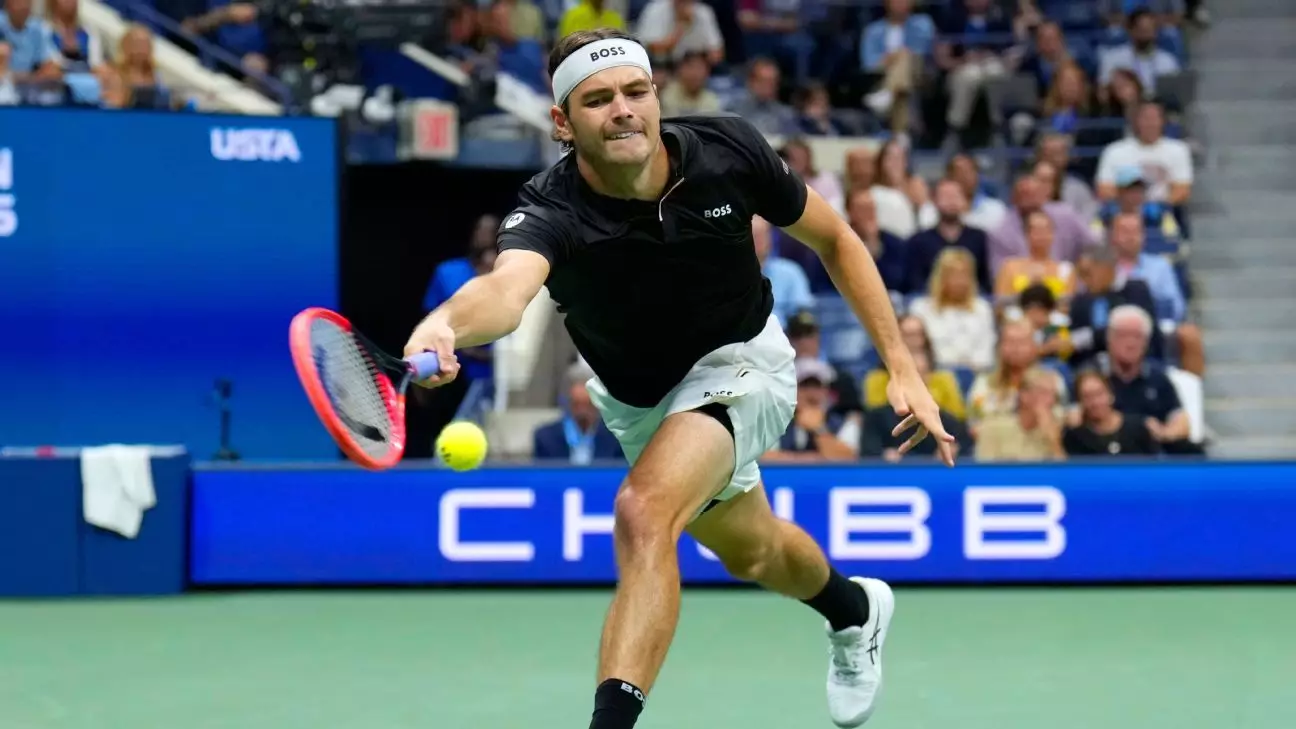The International Tennis Federation (ITF) has announced a groundbreaking change set to take effect in 2025: off-court coaching. While this decision aims to modernize and invigorate the sport, prominent players like Taylor Fritz have raised concerns about its impact on the core essence of tennis. This significant shift begs an exploration of the potential outcomes, advantages, and drawbacks that this change may herald for the future of the sport.
At the heart of professional tennis lies the profound one-on-one contest, where players battle not only their opponents but also their own mental fortitude. Fritz, currently ranked sixth in the world, has voiced his worries about the diminishing essence of this solitary struggle. His tweet post-announcement expressed a deep-seated concern: “Can we stop ruining the 1v1 mental/strategic aspect of the sport PLEASE.” This sentiment reflects a broader anxiety among traditionalists who cherish the unique isolation that defines tennis as an individual sport.
The imminent availability of off-court coaching threatens to dilute this distinctive quality. The player’s ability to strategize and adapt independently during matches has been fundamental to tennis for centuries. With real-time coaching from a distance, will athletes lose the need to develop their in-game strategies, relying instead on outside input? This potential reliance could significantly alter the psychological dynamics at play, which are integral to both gameplay and audience engagement.
Despite the critique, the ITF projects that introducing off-court coaching will render tournaments more equitable and enjoyable. According to Stuart Miller, the senior executive director of the ITF, this shift has been designed with positive feedback in mind, aiming to enhance player development and the stature of coaching as a profession. Coaches argue that their guidance can optimize performance and strategies, providing players with a tactical edge that could contribute to thrilling matches.
However, the assumption that off-court coaching will make matches more entertaining is contentious. While it might lead to more varied gameplay as players receive tactical advice, the question remains: will this increase engagement or dilute the purity of competition? Fans might appreciate the added excitement of strategic changes mid-match, yet purists could argue that such a modification transforms the sport from a display of sheer skill and determination into a game influenced by external voices.
Former world number 10 Denis Shapovalov echoed Fritz’s sentiments, expressing his sorrow over the change. As a fan, he poignantly remarked, “Tennis is special because you are out there alone. Why are you trying to change the beauty of this game?” These remarks resonate deeply within the community, showcasing a broader debate over the integrity of tennis as an individualistic sport.
The diverging viewpoints surrounding off-court coaching remind us of a crucial crossroads within the tennis world. As tennis evolves, it must grapple with the tension between innovation and tradition, engaging players and fans alike in a dialogue about what the sport should represent in the modern era.
As the ITF’s bold decision approaches its implementation date, the tennis community stands divided. While some welcome the change with the belief that it may lead to a more dynamic competitive environment, others fear it will unravel the fabric of what has made tennis revered as a singular battle of wits and skill. The outcome of this progressive step remains to be seen, but one thing is certain: the debate will continue to shape the landscape of tennis for years to come.

